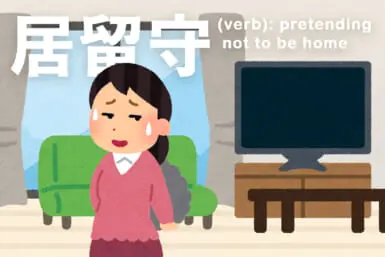
Jesper Koll
Today, Prime Minister Shinzo Abe decided to step down for personal health reasons. His record-breaking long- and stable grip on Japanese power has set a very high bar for his successor. On both the domestic and global stage, he’ll be a hard act to follow.
However, in the immediate future, neither Japan’s economic nor social policy is poised to be much affected because the successor race is primarily determined by ruling party LDP factional strength and inner party power alliances. It is about personalities and personal promises, not policy. The elite bureaucracy, not inspired political leadership and vision, is poised to dictate economic and financial policy making from here.
From Party Politics to Popular Support – A general election within 4-6 months?
Technically, his successor will be selected by the LDP ruling party, with a vote from the members of parliament and some representatives from the local chapters. So it is an inner-party affair, not a general election. However, whoever gets selected by the party in coming weeks will only get to serve out Abe’s term, i.e. he or she will have to be re-elected in the regular LDP party convention coming September next year, 2021. Also, there will have to be a general election before October 22 next year, 2021.
“Many observers, including me, expect a relatively short-lived tenure of Abe’s immediate successor”
So whoever becomes party president and prime minister next, he will probably have to prove his leadership powers to the party’s rank and file by calling a general election sometime over the next four-to-six months. History shows that only a prime minister who can win a landslide victory from the general public is a strong prime minister (PM Abe won two record-breaking super majorities in the three lower house elections the LDP fought under his leadership, Dec 2012, Dec 2014 and Oct 2017). If you cannot deliver victory, you’re out. And after a long eight years of patient waiting, there are plenty of old and young contenders from within the LDP who will want to keep Abe’s successor under pressure to prove his worth sooner rather than later. That’s why many observers, including me, expect a relatively short-lived tenure of Abe’s immediate successor.
Abe’s Legacy – What’s at stake
Rather than speculating on who will out-smart whom in the upcoming LDP party leadership race – as I said, I expect a lot of intense back-room dealing and powerbroking – let me suggest several “trip-wires” to determine whether Abe’s legacy survives:
1. Consumption tax moratorium
Last summer, PM Abe enshrined into the LDP policy platform the promise to not raise the consumption again for another 10 years, i.e. not before 2019. This, in my view, is good policy not just because every time the tax goes up, the economy goes into recession; but more importantly because consumers crave peace of mind and certainty that their purchasing power won’t get cut by higher taxes. It would be a serious red-flag if Abe’s successor gave in to pressure from the treasury and allowed for a return to the “fiscal austerity through higher consumption tax” debate.
2. Top-bureaucrats personnel decisions and political appointments to the Ministries
In 2014, Abe installed a Personnel Affairs Bureau at the Cabinet, which grants him direct control over more than 600 elite bureaucrat appointments. He and his inner circle have used this new tool aggressively, thus fundamentally shifting the power-balance away from entrenched bureaucratic tradition and factionalism towards greater accountability to the goals and objectives of the prime minister and his ministers.
In addition, Abe consistently appointed between five and seven political appointees to each ministry, a sharp departure from his predecessors’ practice of having only the minister and his deputy actually dealing day-to-day with their branch of the administration.
If Abe’s successor shows less enthusiasm for exercising political power over the technocracy, he (or she) will find it increasingly difficult to govern in an effective and innovative way. Reduced competition between political vision and sense of urgency versus expert opinion and sense of continuity would be a clear step backwards.
3. Advisory councils for the Prime Minister
Abe installed no less than five councils advising him on his economic growth strategy alone, plus a number of individual advisers for various other topics. This has significantly shifted the center of both strategic and tactical policy-making away from the ministerial deliberation councils, where laws used to be drafted almost exclusively.
Abe’s advisers and councilors are predominantly drawn from the private sector, thus injecting real-world experience and a sense of urgency into the policy-making process never seen before. If Abe’s predecessor were to reverse course and became more inward-looking and less open for private sector or outside ideas, the risks of Japan falling back towards uninspired policy making would rise.
4. Pro-active Global Leadership
Abe revolutionized Japan’s foreign economic policy. He set himself a target of making one official overseas trip every four weeks. Here, in addition to relentlessly marketing Japan to global investors – “Buy my Abenomics” – the prime minister always insisted on bringing along a delegation of corporate leaders with the explicit strategies and goals for the promotion of Japanese projects in the country visited. To my knowledge, Abe was the first Japanese prime minister to do so, happy to roll-up his sleeves and become a dealmaker for Japan. Whether his successor has the personality and vision to continue remains to be seen. Here, the strong relationship Abe has been able to build with India will become a key litmus test for his successor.
And the winner is? – Japan’s Elite Technocracy
All said, Japanese politics post-Abe Japan is poised to become more inward looking, with his immediate successor likely to have his hands tied by having to prove his domestic leadership credentials first; and by fighting-off challenges from within his party.
If you ask, the most worrying aspect of the post-Abe leadership race is the almost complete lack of private sector interest. Nowhere have we seen a business- or financial leader voice an opinion or desire to actively influence the LDP and the post-Abe leadership race. I hope this will change as the race intensifies; but it goes without saying that markets would benefit from knowing what kind of substantive policies Japan’s business- and financial leaders would like to see pushed by Japan’s next leadership team.
If business does not speak up, the technocracy will return to rule more and more uncontested, happy to divide-and-rule an LDP leadership team focused on personal allegiances more so than policy substance; and that, would be a big reversal from the way PM Abe ran the country.
One of Japan’s most influential economic experts, Jesper Koll is the founding CEO of asset manager WisdomTree Japan. Koll was formerly chief strategist and head of research for JPMorgan and Merrill Lynch, and is one of the few non-Japanese members of the Keizai Doyukai, the Japan Association of Corporate Executives.








